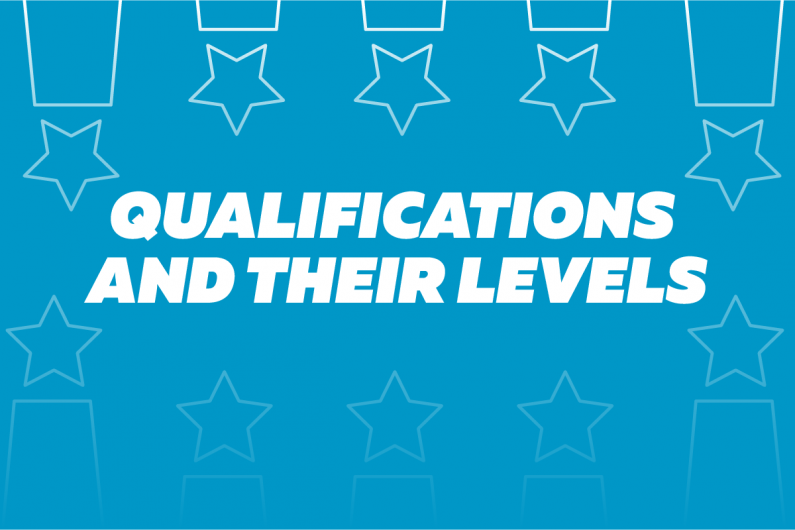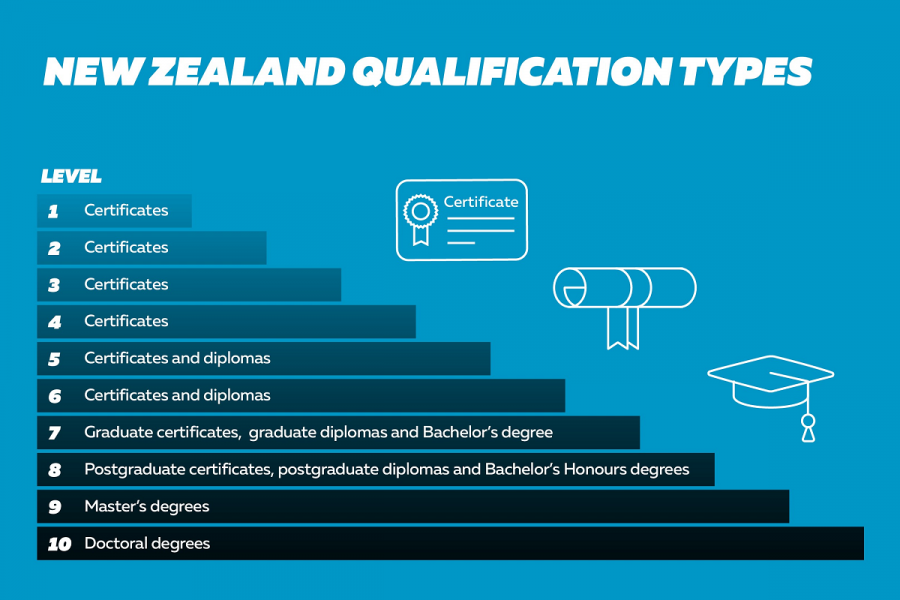Qualifications and their levels

New Zealand tertiary qualifications and their levels.
What's on this page?
Levels of tertiary qualifications
Tertiary qualification levels in New Zealand range from Level 1 certificates to Level 10 Doctorates:
- Level 1 certificates
- Level 2 certificates
- Level 3 certificates
- Level 4 certificates
- Level 5 certificates and diplomas
- Level 6 certificates and diplomas
- Level 7 graduate certificates, graduate diplomas and Bachelor’s degrees
- Level 8 postgraduate certificates, postgraduate diplomas and Bachelor’s Honours degrees
- Level 9 Master’s degrees
- Level 10 Doctoral degrees.
- NZQA website - understanding New Zealand qualifications
- Which places offer which qualifications
Qualification levels
Information about qualifications should always state their level, which indicates how much work's involved. For example, these certificates in applied science have very different requirements for learners:
- Certificate in Applied Science (Level 3)
- Certificate in Applied Science (Level 4)
- Graduate Certificate in Applied Science (Level 7).
- Courses database - search for tertiary courses or education providers
- NZQA website - knowledge and skills needed to achieve a qualification at each level
The qualifications framework and NCEA
The New Zealand Qualifications Authority (NZQA):
- approves secondary and tertiary qualifications
- places those qualifications at the appropriate level on the New Zealand Qualifications and Credentials Framework (NZQCF).
National Certificate of Educational Achievement (NCEA)
National Certificates of Educational Achievement (NCEA):
- are usually studied at secondary school
- are part of the NZQCF
- range from Level 1 to 3.
Tertiary qualifications while still at school
You may be able to study for tertiary or workplace qualifications as well as NCEA while at school.
Qualification level, pay and job entry
Pay rates
Higher qualifications usually lead to higher incomes and better chances of employment. Your subjects, skills and talents also affect your income and job chances.
- Compare Study Options - compare earnings at different qualification levels
- The effect of education on income
Job entry and qualifications
You need a degree to do some jobs. For others you need a certificate or diploma, and some jobs have no formal entry qualifications.
Micro-credentials
Micro-credentials recognise your skills and knowledge in an area that employers are looking for, such as repairing electric vehicle batteries. Some micro-credentials are registered on NZQCF.
Find out more
Updated 30 Oct 2023
